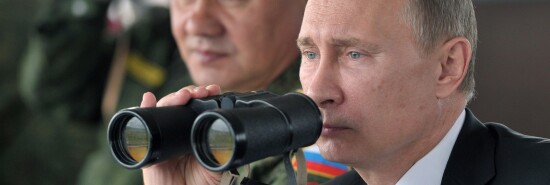
How many dead Russian soldiers are too many for Putin?
Jon Sweet Mark Toth
How many dead Russian Soldiers are too many?
As Russia enters its 11th month of President Vladimir Putin’s “special military operation” in Ukraine, casualties will likely soon surpass 100,000. Most of these casualties come from Russia’s most highly trained units. They cannot simply be replaced with mobilized reservists or conscripts. It takes years to build and develop these formations fully, and once gone, only unit patches remain.
PUTIN ARRIVES IN BELARUS FOR MEETING WITH LUKASHENKO AS WAR RAGES
Bakhmut is Putin’s latest meat grinder, where hundreds of undertrained, underequipped, and poorly led Russian soldiers, along with mercenaries from the Wagner Group, are being thrown into the battle to secure the city. It is a brutal, close-quarters, urban battle that has contributed to mass casualties on both sides. But Bakhmut might very well be the lynchpin of the Donbas region. The Kremlin knows this and is prepared to send as many of the newly 300,000 mobilized reservists or conscripts necessary to hold it while it prepares defensive positions in Crimea and builds sufficient combat power to launch an offensive elsewhere — possibly from Belarus.
The wholesale slaughter is justified, in Putin’s mind, as a fixing force, and thus, the soldiers are expendable.
Still, Russian mothers may have a different opinion than Putin. They contributed to the withdrawal of Russian forces from Afghanistan and are once again making their voices heard alongside the wives of the Russian soldiers fighting in Ukraine. Putin is aware and has now tried to reach out to them — twice. The first time came 12 days into the invasion, after being accused of using their sons as “cannon fodder” in the war with Ukraine. Putin recently tried to reach out to them again in a carefully scripted event but was criticized for hand-picking a group of women not associated with the Council of Mothers and Wives who “would not openly criticize Putin and his partial mobilization decree.” Putin told the assembled women, “We understand that nothing can replace the loss of a son, a child, especially for the mother, to whom we all owe the birth. I want you to know that we share this pain with you. … We will do everything so that you do not feel forgotten.”
Sometimes the internal threat is as dangerous as the external. Russian mothers, elites, nationalists, leaders of mercenary groups, and saboteurs working deep within the interior of Russia targeting infrastructure — all pose threats to Putin. Ten-thousand casualties a month does not help.
CLICK HERE TO READ MORE FROM THE WASHINGTON EXAMINER
Jonathan Sweet, a retired Army colonel, served 30 years as a military intelligence officer. Follow him on Twitter @JESweet2022.
Mark Toth is a retired economist, historian, and entrepreneur who has worked in banking, insurance, publishing, and global commerce. Follow him on Twitter @MCTothSTL.
